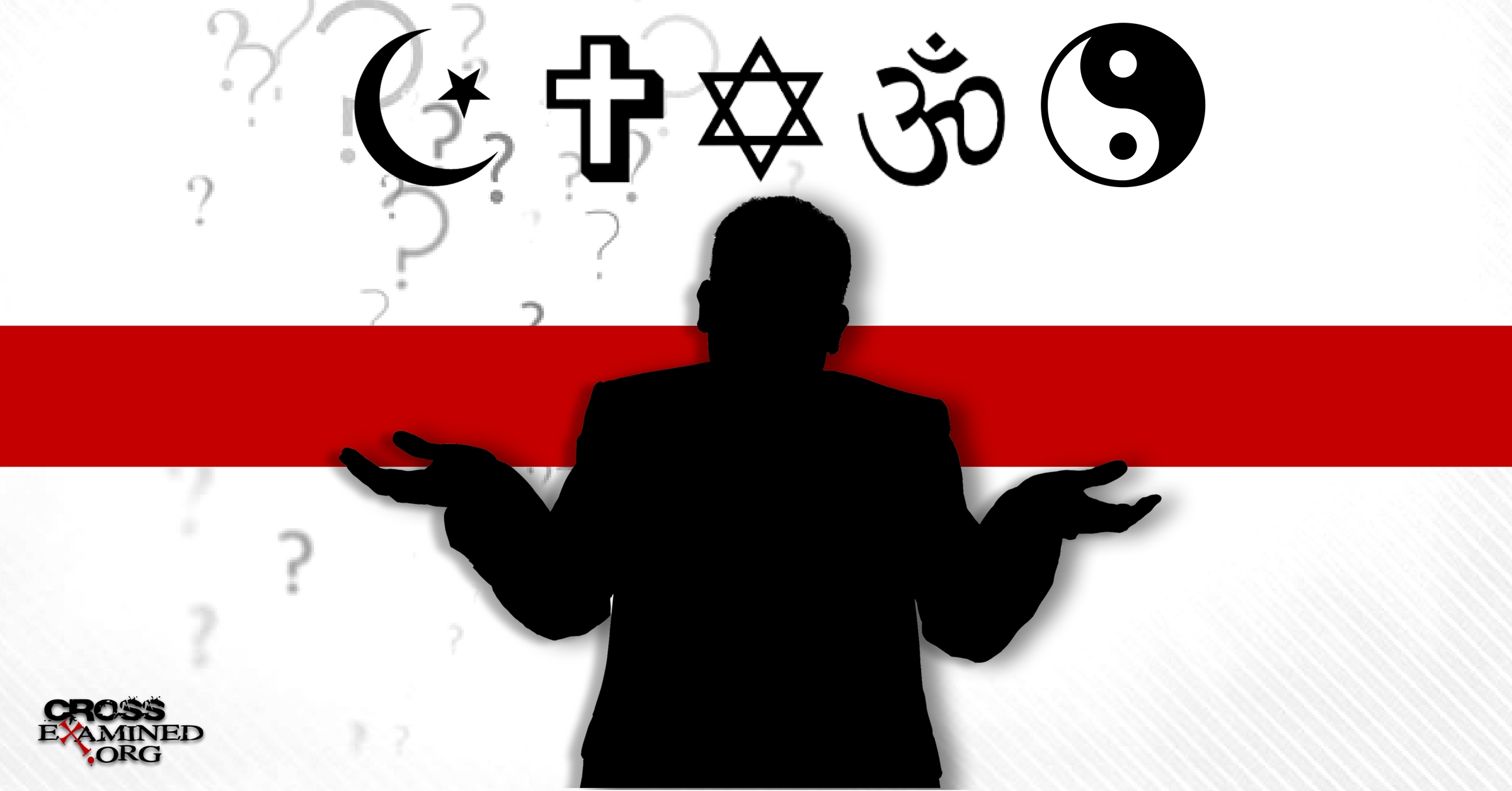One common question atheists often ask Christians like me is why we believe in the God of The Bible as opposed to all of these other gods in all of these made up religions. They will ask “You believe in only one God? Why don’t you believe in Thor, or Zeus, or Athena? You claim all these gods don’t exist? Yet you say your god does? How do you tell the difference?”
Actually, this question is one of the first things that made me doubt my own Christian faith. Years ago, I pretty much had no way to tell between Christianity and other religions? How do I know Yahweh is the one true God? If these others are made up, how do I know my God isn’t? Fortunately, The Lord showed me Christian Apologetics and gave me a good way to discern between them. Now, I’m not going to go into all of the evidence for The God Of The Bible right now. If I did, this blog post would be extremely long, just incredibly wordy. Rather, I’m going to link to these arguments and evidence which demonstrate the truth of Christianity, and when you’re done reading this blog post you can click on those links and study the arguments individually if you’d like. The links will be highlighted in blue.
One way to know is The Big Bang itself. According to The Big Bang, the entire universe popped into being out of nothing! And according to people who have done exhaustive studies of the world’s religions (e.g Hugh Ross), the only beliefs that have God creating out of nothing are Judaism, Christianity, Islam, and Deism. All other religions have God or gods creating within space and time that have existed from eternity past. So, the very origin of the universe itself narrows it down to 4 possibilities. Moreover, the origin of the universe demonstrates that the existence of the universe must have been brought into being by a causal agent. A causal agent whose existence is spaceless, timeless, immaterial, powerful, uncaused, supernatural and personal (See The Kalam Cosmological Argument).
If the scientific evidence for Intelligent Design goes through (e.g The Fine Tuning Of The Universe, The Local Fine Tuning, The DNA Evidence, Irreducible Complexity), you can rule out Deism. Because what arguments like the teleological arguments show is that this God is actively shaping the universe and life to make it’s inhabited by creatures. That rules out Deism and fits better with theism.
Moreover, I might add that the Ontological Argument demonstrates that there exists a being much like the God of The Bible. The Ontological Argument, if it goes through, would demonstrate that there exists a being who is Omniscient, Omnipresent, Omnipotent and Omnibenevolent. This contradicts many gods like Thor and Zeus. The only religions consistent with a being like this are the 3 monotheistic religions. Polytheistic gods like Thor are merely superhumans (Stan Lee took advantage of this fact). But they’re not omnipotent or omnipresent or anything like that. The beauty about the Ontological Argument is that it not only demonstrates that God exists but it puts forth all of his superlative qualities which you can’t derive from other arguments from natural theology.
In fact, arguments from natural theology can tell us not just that God exists, but it can demonstrate a lot of attributes about God. Attributes that The Bible describes Him as having. The Kalam Cosmological Argument shows that God is a spaceless, timeless, immaterial, powerful, supernatural and personal agent. The Fine Tuning Arguments (universal and local) demonstrate that God is incredibly intelligent, at least intelligent enough to know how to fabricate a universe suitable for creatures to inhabit. The other teleological arguments (DNA and Irreducible Complexity) do the same thing. The Moral Argument demonstrates that God is morally perfect since it demonstrates that God is the standard by which we measure people to determine just how good or just how evil they really are. It demonstrates that in the absence of God’s existence, there would be nothing we could objectively call good and evil because there would be nothing to compare it with. Who or what exactly are we comparing Hitler or Bin Ladin to when we call them evil?
The Ontological Argument demonstrates God’s superlative qualities (as I’ve already noted above). If it pulls through (that is, if it meets the 3 requirements for being a good argument, which are: The conclusion must follow from the premises by the laws of logic, all of the premises must be true, and we must have good reasons to think that they’re true), if this argument meets those 3 requirements, it demonstrates that there exists a being that is omnipotent, omnipresent, omniscient, omnibenevolent, and necessary in its existence (aseity).
These arguments from natural theology/general revelation, when put together, give us powerful reasons to believe in the existence of a Being that very, very closely resembles the being that The Bible describes as God. Moreover, the beautiful thing about natural theology is that you derive this Being’s existence without appealing to any scripture whatsoever. So the atheist can’t accuse you of circular reasoning (appealing to The Bible to prove The Bible). We can conclude that this being exists just from science, and logic alone.
But if you want to get to Christianity and eliminate the other 2 options, one may want to look at the evidence for Christ’s resurrection. For me, Christ’s resurrection settles everything,. If it can be historically established that Jesus made claims to be God, and then rose from the dead, then that is pretty good evidence that He was telling the truth. The resurrection means that God put His stamp of approval on everything Jesus said and did. It means that He is both Messiah and Lord. Therefore, anything contradictory to Christ’s teachings must be false. I happen to think that the historical evidence for Jesus Christ’s resurrection is very powerful. I admonish you to look at the Cerebral Faith blog posts I wrote on this topic. In PART 1, I give the evidence for the 5 minimal facts; (1) that Jesus died by crucifixion, (2), that Jesus’ tomb was found empty, (4) that the disciples believed they saw Jesus alive after his death, (4), that a persecutor named Paul converted on the basis of what he believed was an appearance of the risen Jesus, and (5) that a skeptic named James converted based on what he believed was an appearance of the risen Jesus. In PART 2, I examine which of the explanations best explains those hypotheses and show that only the hypothesis “God raised Jesus from the dead” best explains the 5 facts while naturalistic explanations fail.
But if you want to dive into studying this topic even deeper, I suggest the books “The Case For Christ” by Lee Strobel, “The Case For The Resurrection Of Jesus” by Gary Habermas and Mike Licona, and also “On Guard” by William Lane Craig (Craig’s book also delves into 4 of the natural theology arguments I’ve listed above, but it also has a chapter on Jesus’ claims to deity and a chapter on the evidence for his resurrection).
So there you have. Reasons why I believe in The Biblical God instead of any polytheistic or pantheistic gods. I hope that whether you’re a Christian like me or an atheist, that you will click on the links above and take the time to read those linked articles. If you’re an atheist, it might make a believer out of you. If you’re a Christian, it will likely strengthen your faith. God bless you.
For a fuller treatment on this, check out Evan’s book ‘Inference To The One True God: Why I Believe In Jesus Instead Of Other Gods’.
Original Blog Source: http://bit.ly/2qBOgI7


















Facebook Comments